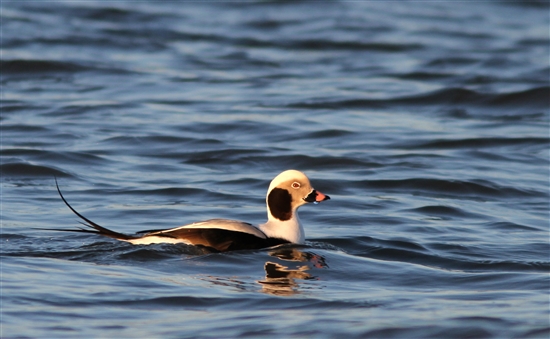To continue the marine theme this week I've asked my colleague Rory Crawford to provide an update on seaduck conservation.

Image courtesy of Julius Morkūnas.
There are many things that famously herald the arrival of autumn: golden leaves, shortening days, cooler mornings, the explosion of fungi, the departure of swallows, the arrival of honking geese overhead, and the arrival of our marvellous wintering seaducks…